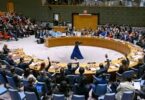In a meeting with World Bank (WB) delegation, Prime Minister Shahid Khaqan Abbasi claimed that implementation of overall economic reforms agenda by the PML-N government has resulted in the revival of national economy and the economic growth is now on the upward trajectory. He also claimed that concrete measures have been taken to ease the cost of doing business for improving the economic environment. The Prime Minister urged the World Bank to help in resolving water disputes with India.
The socio-economic indicators reflected in high level of unemployment, 50 percent people living below the poverty line, looming large debt trap, $12 billion current account deficit, flight of capital, fast depreciation of currency against almost all foreign currencies and relocation of textile industry outside the country do not support the claim of revived economy. Six million educated young people are unemployed and every year half a million new job seekers enter the job market. The unemployment statistics does not include the rate of un employment in the informal sector which is not documented in the yearly estimate of National income accenting and employment data. The international poverty line based on $ 2 daily income depicts that about 100 million people are living below the poverty line and if drastic pro poor people economic reforms are not implemented with strict control over financial corruption the trend of abject poverty will certaily emerge.
Foreign debt is worth $ 85 billion and the total public debt is well over Rs 27000 billion. Fresh loans are acquired on high rate of interest for debt repayment, external sector obligations because of widening foreign trade gap and budgetary support. The trade deficit with China alone is $ 8 billion and with Indonesia it stands at $ 2.3 billion. Under the Preferential Trade Agreement (PTA), Indonesia has now agreed to enhance the import of Kinnow from 34000 ton to 60000 ton but this will not have a significant impact on bilateral trade deficit because it will fetch $ 33 million foreign exchange. The 10 years period of Generalized Scheme of Preference Plus (GSP Plus) for exports on Zero tariff to European Union has expired but the exports could not record an appreciable increase due to lack of completive edge of our products against the export items of other countries to which tariff concession was not granted. The Prime Minister himself admitted in his speech at Pakistan Economic Forum a few days ago that exports are stagnant at $ 20 billion. But rice exporters are denied of the incentives to enhance the export ‘Basmati’ rice worth 265 million dollars to the European Union.
The World Bank and International Monetary Fund are persistently urging the government to utilize the available IT data with the Federal Bureau of Revenue to expand the tax base by direct taxes like wealth tax, corporate income tax, Tax on agriculture income, capital gains tax and broker’s tax. But the present government dominated by mercantile and feudal classes does not want to impose tax on the rich and wealthy people and is mercilessly burdening the poor people over and over with indirect taxes. The percentage of tax return of non-filers companies and business partnership enterprises has reached to 43 percent. The trade bodies have repeatedly requested the government to expel the ghost of Finance Minister on long leave, Ishaq Darom this important ministry to bring down the cost of doing business but to no veil. The Lahore Chamber of Commerce and Industry (LCCI) in their meeting in November last year gave valuable proposals for putting the economy on real economic growth path ,however, their proposals are yet to be seriously considered. The economic growth calculated on expenditure method alone is not the true barometer of the health of the economy. The expenditure on so called development projects that are reflected on paper and not existing on the ground jack up the economic growth estimates. Likewise, expenditure slippages in the coming general elections will also show a rising trend of economic growth but these expenditures have no trickle down effect on the life of common man. The socio-economic uplift of the people is depicted by Human Development Index (HDI). The UNDP report released in April 2017 rank Pakistan 148 out of 187 countries with a poor HDI of 0.5. The literacy rate has dropped from 60 t0 58 percent during the last two years.
No doubt WB can help Pakistan resolve water disputes with India but the latter wins cases pertaining to construction controversial dams on three westerly rivers in violation of Indus BasinTreaty because of the animosity of Pakistani leadership towards the construction of big dams right from Z.A Bhutto down to Benazir Bhutto and Nawaz Sharif. The dams of Tarbela, Mangla and Warsak were built in President Ayub Khan Era. Consensus is deliberately not evolved for the construction of Kalbagh dam; Diya Mir Basha dam project has been shelved, and construction of Dasu dam is on hold. The World Bank has already highlighted the macro economic imbalances of Pakistan’s economy in its report issued in August 2017 and its management will be least interested in hollow assurances of economic reforms from Pakistani leadership.






